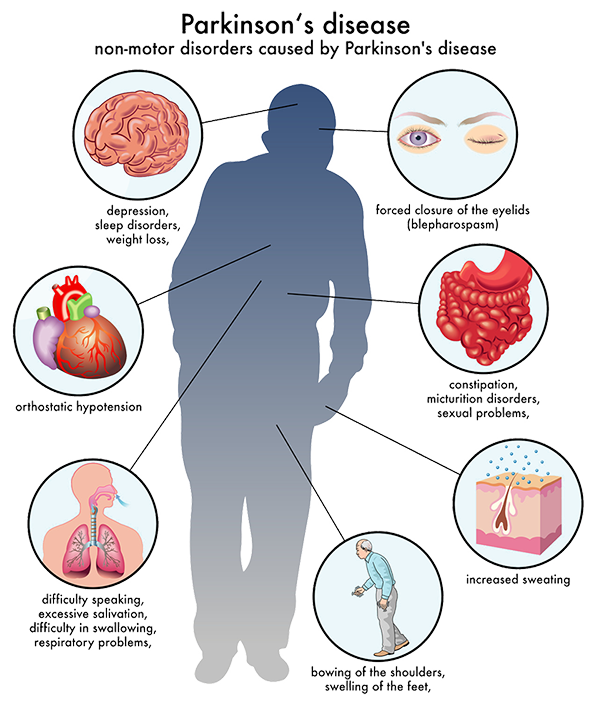



















Signs of Parkinson"s Disease
Tremors are the most recognizable of the signs of Parkinson’s disease (characterized by a shaking of the limbs and body – about 5 per second). Rigidity, just as it sounds, is a stiffness of the body and muscles. Slowness movement may seem contradictory to the other signs of Parkinson’s disease, but in many cases continued rapid movement eventually causes a decrease in amplitude and the loss of ability to perform that movement at all. Loss of balance is caused by a failure of postural reflexes.
Other motor (movement) signs of Parkinson’s disease include: shuffling, decreased arm swing, “stooped” posture, festination, inability to move the feet, abnormal, and sustained muscle twisting and contraction. Patients also typically suffer speech and swallowing problems like rapid, poorly-intelligible speech, drooling or loss of verbal comprehension.
Some of the non-movement related signs of Parkinson’s disease include: mood disturbances, depression, slowed reaction time, dementia, memory loss, sleep disturbances, fatigue, dizziness and fainting, loss of smell and muscle pain.
Finally, the autonomic (self-managing in the within the body) signs of Parkinson’s disease include: oily skin, urinary incontinence, costipation, altered sexual function, and weight loss.
These typical symptoms and signs of Parkinson’s disease are not fatal, but do cause extreme discomfort in patients
suffering from this condition
WEST AZARBIJAN URMIA--Dr.RAHMAT SOKHANI